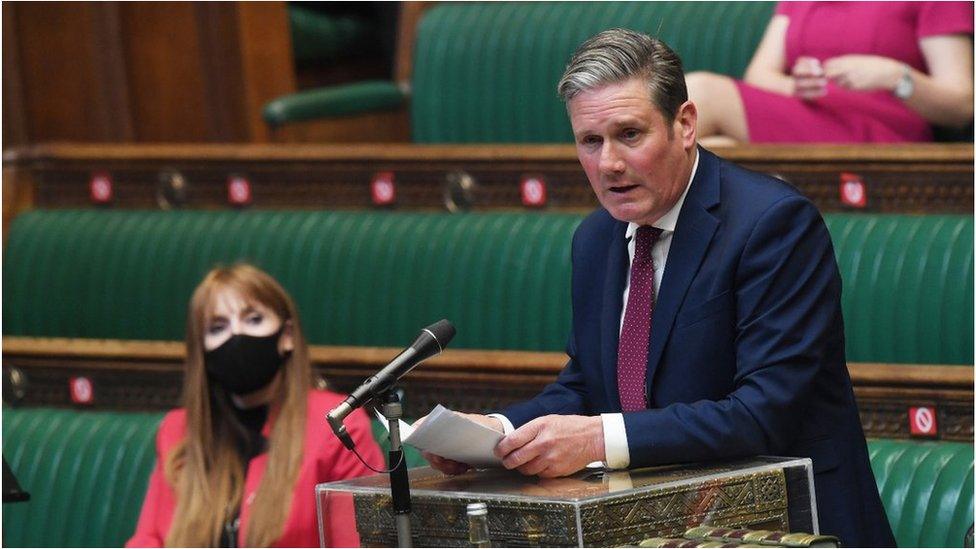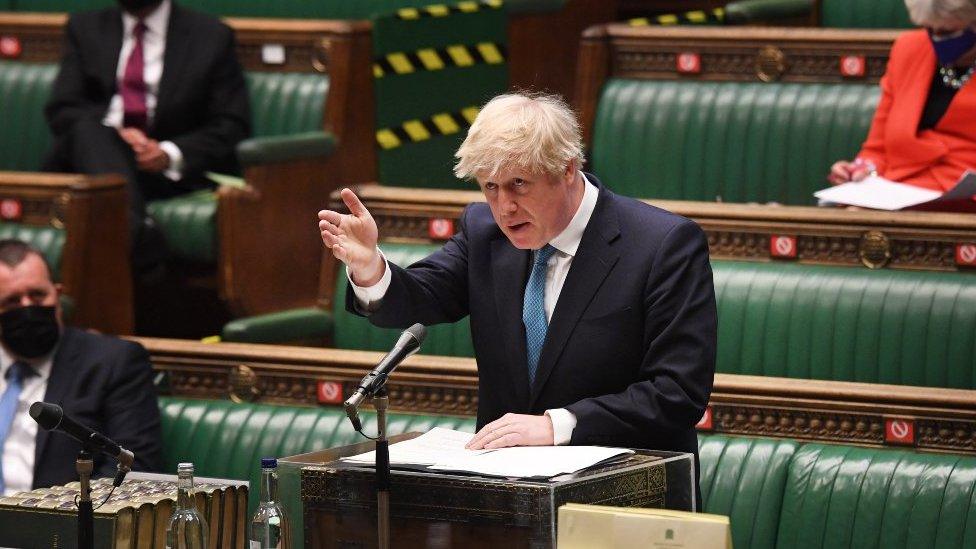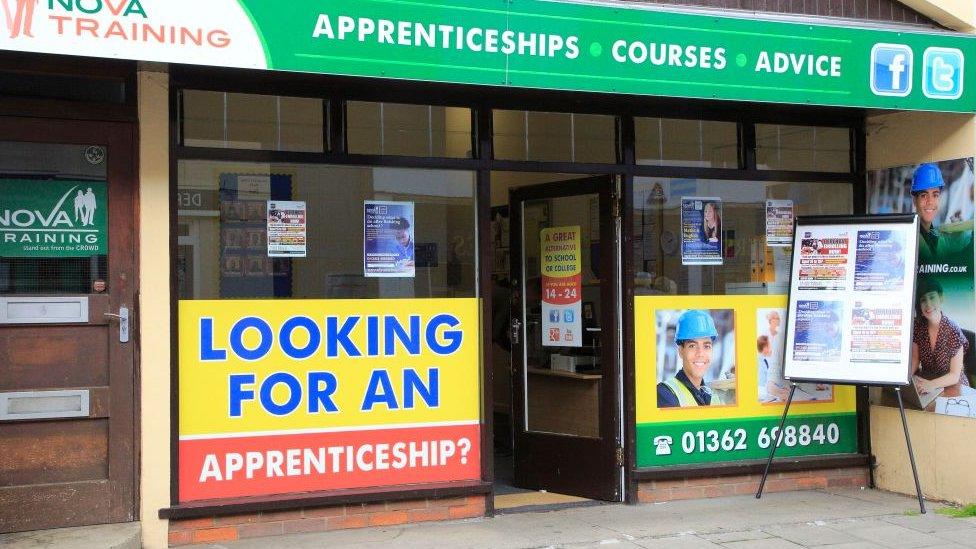Queen's Speech debate: Waiting lists, social care and other claims fact-checked
- Published

The government's plans and priorities for the coming years - as set out in the Queen's Speech - have been debated in the House of Commons and elsewhere.
MPs made claims about what was in the speech - including proposals to "level up" parts of the UK, changes to planning and voter ID - and what was not, specifically a long-awaited plan to reform social care.
We've looked at some of these claims.
Keir Starmer: "Waiting lists at a record high of 4.7 million"
The Labour leader made this claim while calling for "a long-term recovery plan" for the NHS.
This is correct. Figures from NHS England show that around 4.7 million people were waiting for routine operations and procedures in England in February - the highest since records began in 2007.
But context is needed as, clearly, at that time the health service was dealing with the Covid pandemic.
In April, Professor Stephen Powis, national medical director for the NHS in England, said treating 400,000 patients with Covid-19 over the course of the last year, had "inevitably had an impact on the NHS".

Boris Johnson: "They [Labour] failed to do anything at all about social care... they did nothing at all for 13 years in office"
There was not a wholesale reform of social care under Labour, but saying it did "nothing at all" is not correct.
A 2010 report, external by the House of Commons Health Committee criticised the Labour government for failing to reform social care funding, but said the government had "made better use of its time in office" on reforming how social care was delivered.
This included giving people more control over how money was spent on their care, with the introduction of personalised budgets.
It also started the process of integrating health and social care, and in 2009 set up the Care Quality Commission - the independent regulator of health and social care services.
In 2010, Gordon Brown's government published plans, external to create a National Care Service, but these were never implemented as he left Downing Street soon afterwards.
Social care funding increased under Labour. According to the King's Fund, external, adult social care funding rose by 53% between 1997 and 2008.
It's also worth pointing out that successive Conservative governments failed to reform social care.
And, after 11 years in power, spending on adult social care has only just returned to the same level it was in 2010/11 (and is lower, if you look at spending per person), according to the King's Fund, external.
In 2019, Boris Johnson promised, external "to fix the crisis in social care once and for all with a clear plan we have prepared".
Nearly two years on, this plan has yet to be unveiled, although he says he will do so "later this year".
Keir Starmer: "Even before this pandemic, there were 5.7 million people in low pay or insecure work"
His number is a bit high according to the Living Wage Foundation, which published research last year, external suggesting that 5.1 million people had been in low paid or insecure work on the eve of the pandemic.
The definition of low pay was people earning less than the living wage set by the foundation, external, which for 2019-20 was £10.75 an hour in London and £9.30 an hour in the rest of the UK.
Insecure work included those who did not have permanent contracts but wanted them, and those with volatile pay or hours.
Boris Johnson: "Who raised it [the national living wage] by record sums? It was this one-nation Conservative government"
The prime minister said "it was very interesting" to hear the Labour leader talking about the national living wage (NLW).
He asked who had introduced it and who had raised it by record sums.
The NLW was indeed introduced by the Conservative government from April 2016, although it was in many ways similar to the national minimum wage (NMW), introduced by the Labour government from April 1999.
The main changes have been the age bands - the top rate originally was for those aged over 22, which was then changed to 21 and above in 2010, and became 25 and over when the NLW was introduced in 2016.
Looking at those top rates, the biggest cash increase was the Conservatives' 50p rise to £7.20 an hour in 2016.
But the biggest increase in percentage terms was Labour's rise from £3.70 to £4.10 in 2001.

Keir Starmer: "The number of apprentices has fallen by 200,000 in the three years to 2020"
The Labour leader said the prime minister's rhetoric on lifetime skills didn't match the reality.
The figures show there was a fall of 189,700, external over that period from the 2016-17 figure of 908,700.
That figure was the high point, coming just before the introduction of the apprenticeship levy in May 2017. The levy takes 0.5% of the salary bill from major employers in England and uses the money to improve skills and provide training.
Gillian Keegan: "If I go to collect a parcel at the Post Office now, I need to take my driving licence or my passport"
The Conservative MP and skills minister was explaining on BBC News why voters should be required to show identification at polling stations.
Actually, the Post Office has a long list, external of forms of identification it accepts, including a credit card, utility bill or marriage certificate.
The new system for voter ID is expected to be similar to the existing system in Northern Ireland, where photo ID is needed.
Passports, driving licences, various passes for public transport provider Translink and the free electoral identity cards are all accepted at polling stations.
You can read more about the issue of voter ID here.


